Archives: Documents
-

What motivates women to buy?
-
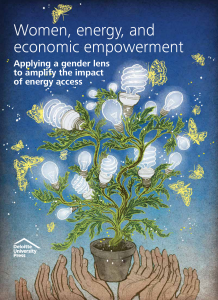
Women, energy and economic empowerment
-
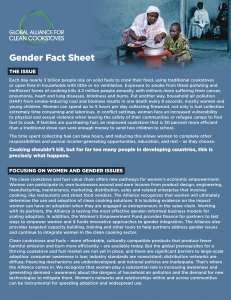
Gender fact sheet
-
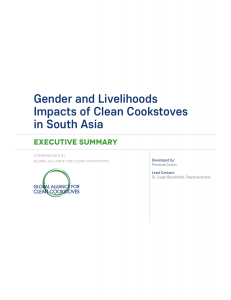
Gender and Livelihoods Impacts of Clean Cookstoves in South Asia
A study that measured the use of improved cookstoves in India, Bangladesh and Nepal found that women spend the equivalent of more than two weeks each year collecting firewood in India. Households using cleaner, more efficient cookstoves saved significant amounts of time and used less fuel than those using traditional stoves. Women who saved time…
-
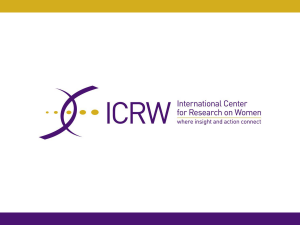
Defining and Measuring the Social Impact of Clean Cooking Solutions
-
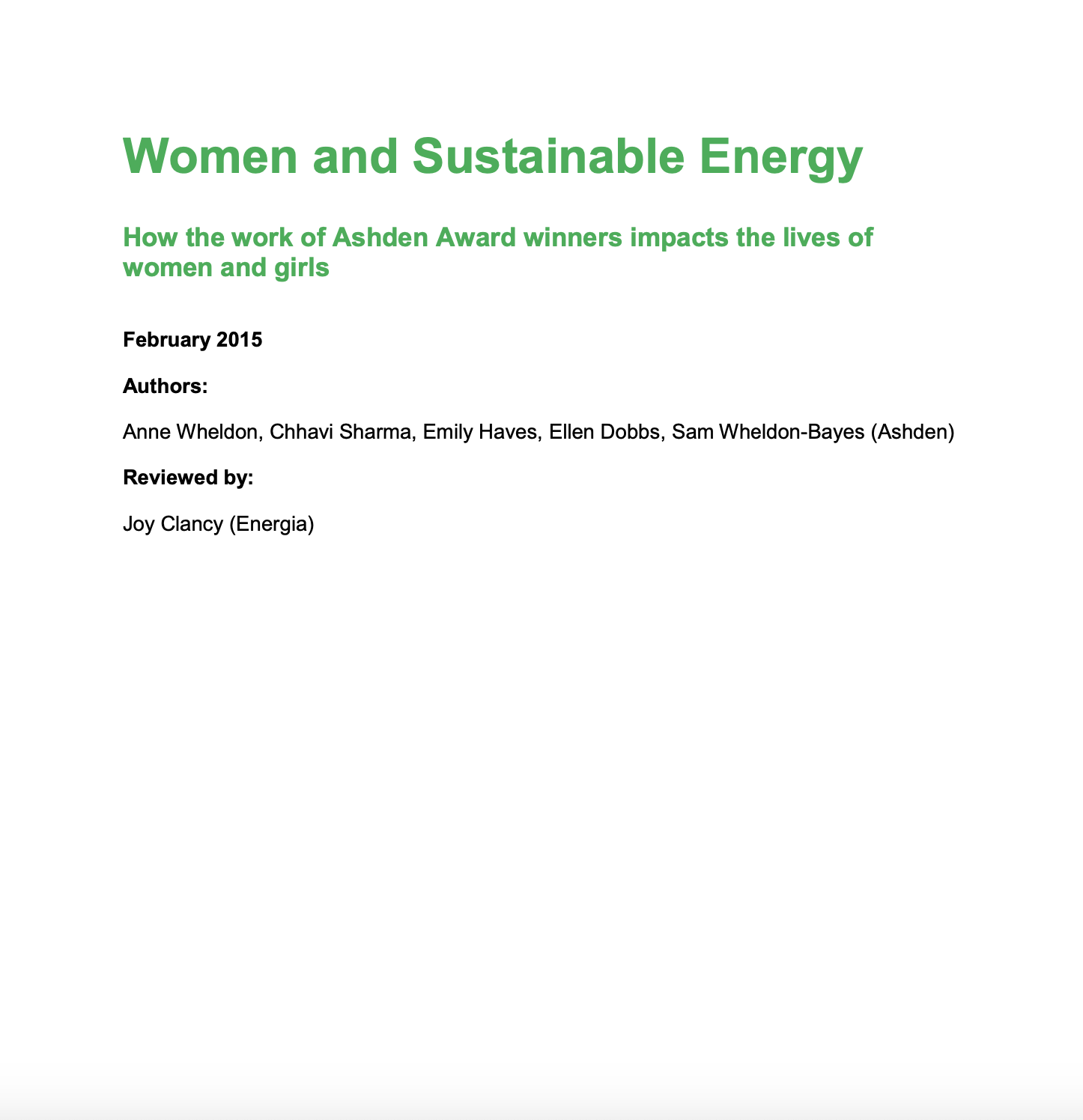
Women and Sustainable Energy – How the work of Ashden Award winners impacts the lives of women and girls
-
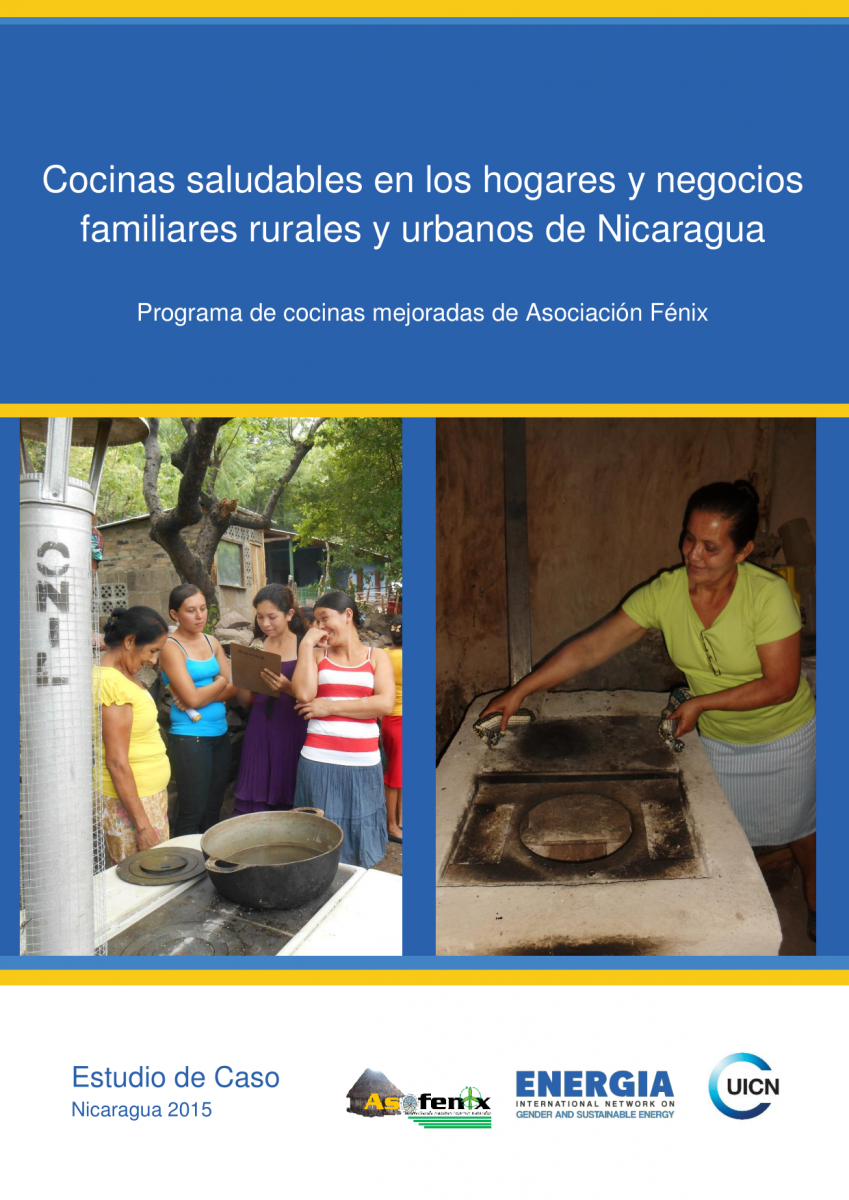
Cocinas saludables en los hogares y negocios familiares rurales y urbanos de Nicaragua Programa de cocinas mejoradas de Asociación Fénix
El presente documento es el tercero de una serie de cuatro estudios de caso que se llevarán a cabo en Centroamérica bajo esta iniciativa. “Cocinas saludables en los hogares y negocios familiares rurales y urbanos de Nicaragua” destaca los resultados en términos de igualdad de género obtenidos por la Asociación Fénix, una organización no-gubernamental y…
-

Review of Norad’s Assistance to Gender Mainstreaming in the Energy and Petroleum Sector 2010-2014
In 2010 Norad entered into a Framework Agreement with the International Network on Gender and Sustainable Energy – ENERGIA . The purpose of the Framework Agreement is to provide Norad with high quality technical support for gender mainstreaming in Norwegian support for the energy sector, which includes both Clean Energy for Development and Oil for…
-
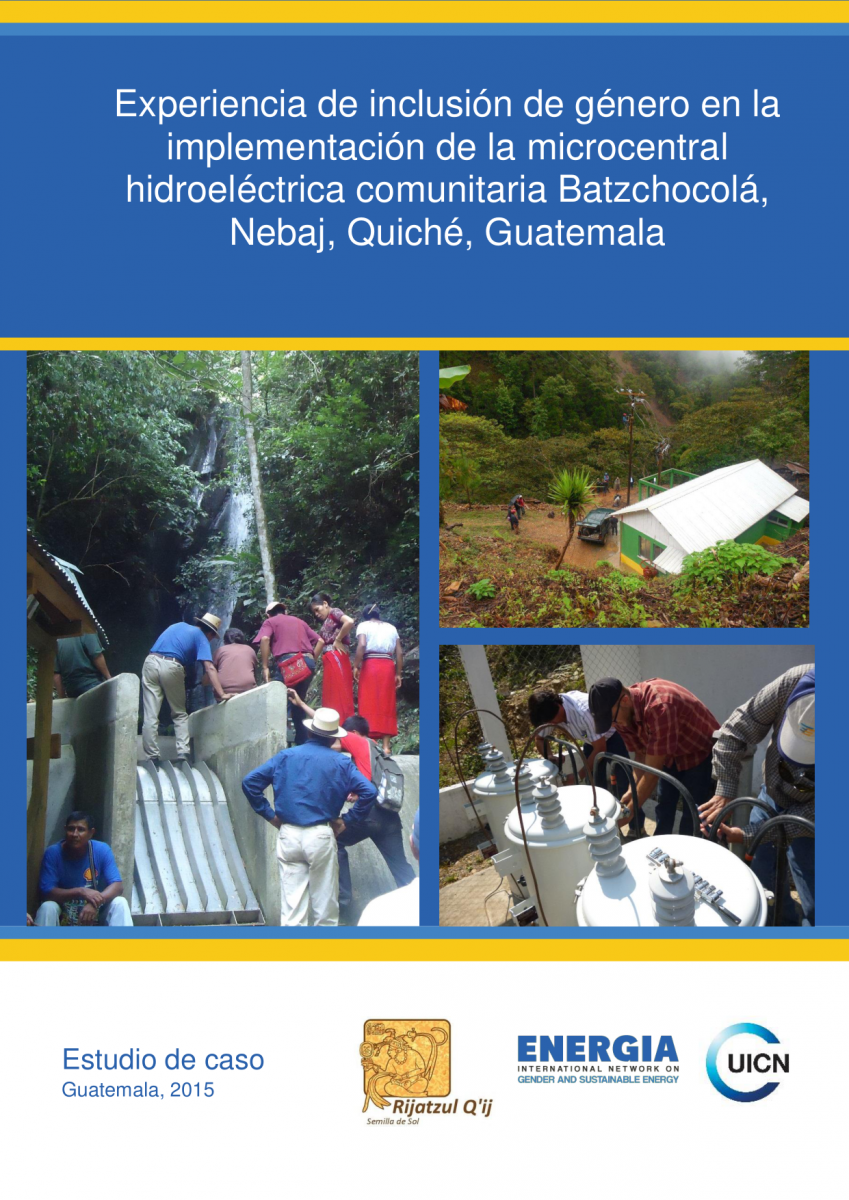
Experiencia de inclusión de género en la implementación de la microcentral hidroeléctrica comunitaria Batzchocolá, Nebaj, Quiché, Guatemala
El presente documento es el tercero de una serie de cuatro estudios de caso que se llevarán a cabo en Centroamérica bajo esta iniciativa. “Experiencia de inclusión de género en la implementación de la microcentral hidroeléctrica comunitaria Batzchocolá, Nebaj, Quiché, Guatemala” destaca los resultados en términos de igualdad de género obtenidos por la Semilla de…
-
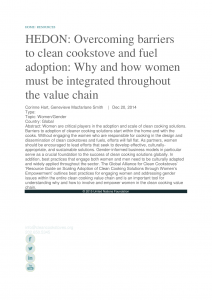
Overcoming barriers to clean cookstove and fuel adoption: Why and how women must be integrated throughout the value chain
-
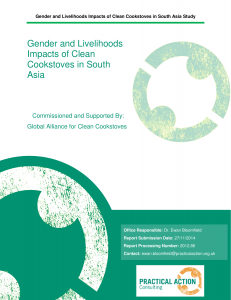
Gender and Livelihoods Impacts of Clean Cookstoves in South Asia
In South Asia, women play a significant and dominant role within the household cooking sector. Generally women do most of the cooking and, therefore, are disproportionately affected by household air pollution (HAP) caused by the inefficient burning of solid biomass cooking fuels. They are also required to spend a significant amount of time and effort…

